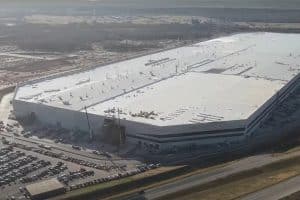South African retail firm TFG has bought 307 Tesla Powerwall battery storage units to support operations while state-owned power utility Eskom continues load shedding practices.
Load shedding is the practice of switching off parts of the electric grid when there is insufficient capacity. TFG, which owns well-known retail stores in South Africa, turned to Tesla Powerwalls to keep the lights on throughout daily operations, minimizing load-shedding effects on its businesses.
“In many cases, after experiencing load-shedding, it can take some time for our systems to fully recover, and having uninterrupted power to our stores assists with that too,” the company said.
The South African retail firm ordered 227 Tesla Powerwalls in late July 2022 and another 80 Powerwall battery storage units about a month later.
TFG’s first batch of Tesla Powerwalls were distributed among 130 of the retail firm’s most profitable outlets. The second batch of Powerwalls was installed at 43 other outlets. TFG plans to install more Tesla Powerwalls at other branches. It’s also open to using battery systemsˆ from other brands.
As of Thursday, September 29, South Africa experienced its 115th day of rolling blackouts in 2022. Eskom Holdings SOC Ltd. uses aged coal plants to provide electricity to South Africa and supplements generation capacity with diesel turbines.
On Wednesday, September 28, Eskom noted that it would cut 4,000 MW from the grid until fuel stocks were replenished. The state-owned utility’s fuel levels ran low after the vessel delivering its supplies could not berth due to rough seas.
Recently, Eskom announced that it would continue with Stage 4 load shedding until 5:00 am Saturday. The South African power utility plans to reduce to Stage 3 load shedding by the end of the weekend. With Stage 3 load shedding, Eskom plans to cut only 3,000 MW from the grid, starting at 5:00 am October 1.





